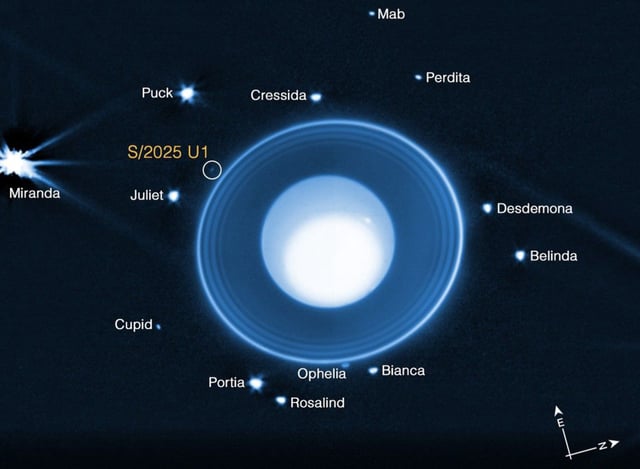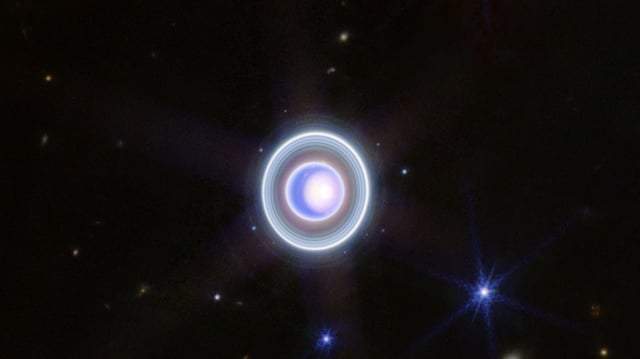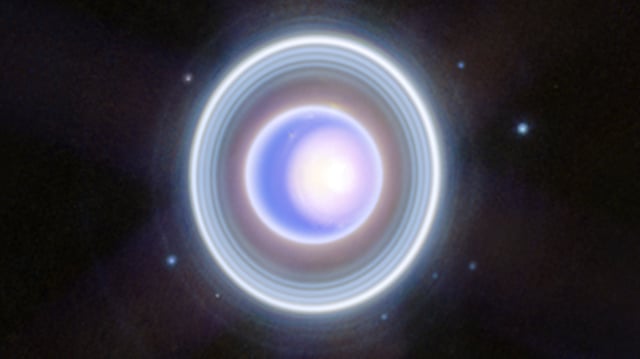Overview
- The satellite, provisionally designated S/2025 U1, is estimated to be about 6 miles (10 kilometers) in diameter.
- It orbits roughly 35,000 miles (56,000 kilometers) from Uranus’s center in the equatorial plane between Ophelia and Bianca on a near-circular path.
- Researchers identified it in ten 40‑minute exposures taken by JWST’s NIRCam on Feb. 2 as part of a General Observer program.
- The finding increases Uranus’s known moons to 29, and scientists say the object is smaller and fainter than previously known inner moons.
- The result awaits peer review and an official IAU name, and its faintness likely explains why Voyager 2 did not detect it, hinting that more tiny moons may await discovery.



